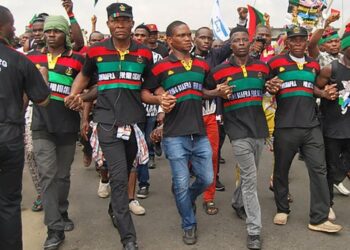A recent Oval Office meeting between U.S. President Donald Trump and South African President Cyril Ramaphosa erupted into controversy after Trump made inflammatory remarks about South Africa’s internal affairs.
Trump began with an explosive allegation that white South African farmers, especially the Boer population, are victims of ethnic cleansing and genocide. To support his claim, he presented a photo showing what he said were graves of white victims.
That image, however, was later revealed to be from a cemetery in the Democratic Republic of Congo, an entirely unrelated setting. The mix-up raised serious concerns about misinformation and intent.
Trump didn’t stop there. He accused Julius Malema, leader of South Africa’s Economic Freedom Fighters (EFF), of promoting black supremacy and inciting violence. He described Malema as a terrorist and a murderer.
These accusations have been widely condemned as false. While Malema is known for his provocative rhetoric, he remains a vocal advocate for people facing systemic inequality and economic injustice. He challenges both white and black elites and represents millions of low-income South Africans seeking reform.
Ramaphosa’s reaction to Trump’s tirade appeared subdued. Critics have labeled his response as “weak” and “unassertive,” saying he failed to defend his nation’s image forcefully. Many political analysts believe he missed an opportunity to correct Trump and assert South Africa’s dignity on the world stage.
Former Nigerian Minister Femi Fani-Kayode, once a staunch Trump supporter, strongly criticized the American president’s conduct. He described Trump as a bully who publicly embarrassed an African leader.
“No African President should endure that kind of disrespect,” Fani-Kayode stated.
He added that such behavior could alienate Black and African Trump supporters worldwide.
Time for African Leaders to Rise
Fani-Kayode called for African leaders to shed submissive postures and take pride in their heritage. He praised leaders like Burkina Faso’s Ibrahim Traoré, who represent a new generation of African resilience and independence.
He argued that leaders must educate themselves on global history, uphold dignity, and stop serving as pawns for Western interests.
Though Fani-Kayode still supports Trump’s broader political mission, he warned that current attitudes toward Africa and Gaza are deeply troubling. He urged Trump to realign with compassion, vision, and justice.
“Africans may lack America’s wealth or weapons, but we possess a spirit rooted in faith and resilience,” he wrote. “Their moment may be now, but our future remains bright.”












